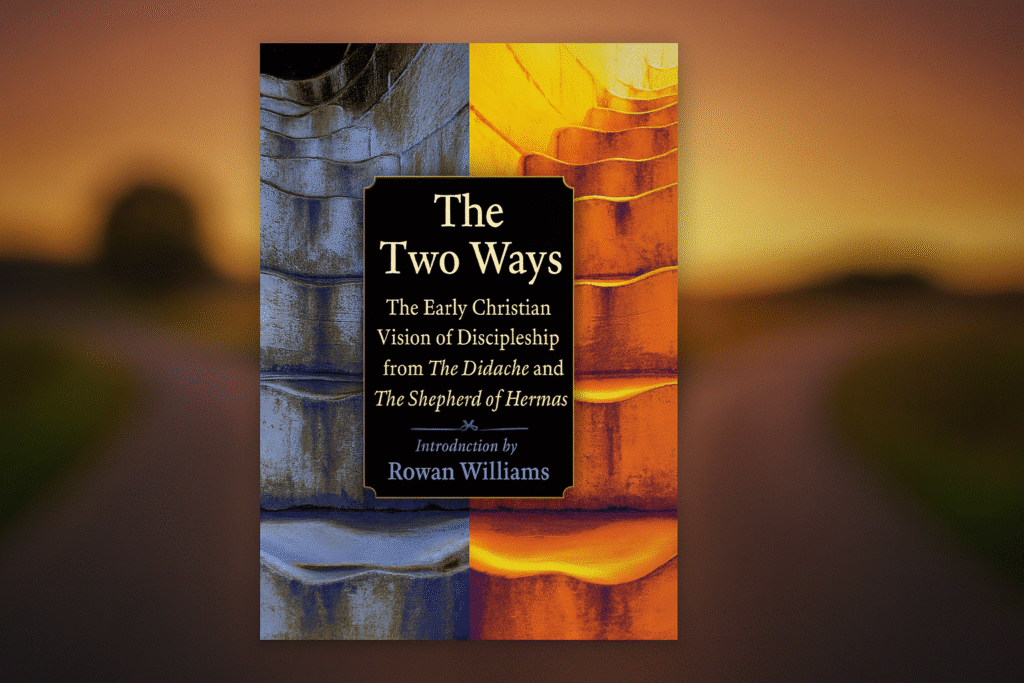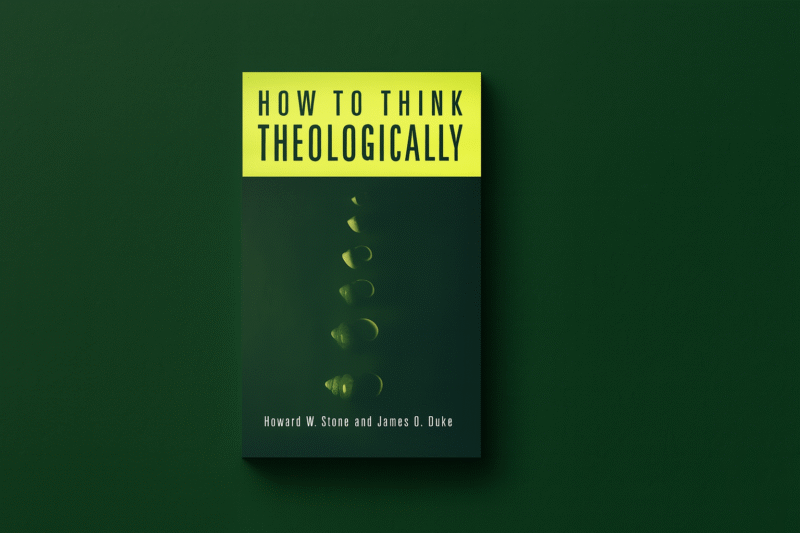
The Didache has captivated my imagination for years, and the minds of scholars and church historians for centuries. Though little known among many evangelicals, this brief handbook of discipleship, catechesis, and worship likely reflects apostolic teaching from as early as A.D. 55. Only a handful of copies survive, yet, as editor Veery Huleatt notes, it “was included in early lists of canonical books” (vii–viii). This anonymous work, composed in the late first century, slipped into obscurity until 1873, when Philotheos Bryennios, metropolitan of Nicomedia, rediscovered it in an eleventh-century Greek codex in Constantinople. That finding has since fueled fresh fascination with the earliest practices and convictions of the Christian community. In The Two Ways, compiled by Rowan Williams, the editor Veery Huleatt, and Plough Publishing House, gives us an English translation that was by Greek Scholar “Michael W. Holmes, “a preeminent scholar of early Christianity, based on the earlier work of J.B. Lightfoot and J.R. Harmer” (ix).
The Shepherd of Hermas
Included in this book The Two Ways, is The Shepherd of Hermas. This work might be even less known by many Evangelicals and other Christian groups today. Though once again, like The Didache, The Shepherd of Hermas was also included in early lists of canonical books. It is slightly younger than The Didache, probably being “in the second century AD,” but some do argue that it could have been “even earlier” (vii-viii). Williams remarks, “The Shepherd of Hermas narrates several revelations or visions (and the explanations of their meaning and significance) given to Hermas, a Christian living in Rome; the visions typically are mediated and explained by an angelic figure. The document takes its name from a key figure in the book, the “angel of repentance,” who appears to Hermas in the form of a Shepherd” (18). This translation also comes from Michael W. Holmes. Though The Didache has captivated my memory since I first discovered it, proving to be an extracanonical source that served as an apologetic for me early in my spiritual search, The Shepherd of Hermas is something I have wrestled with for some years. I love it, and find tension with it, I am encouraged and challenged by it, and at the same time, I want to dump it. I have not landed yet on a conviction whether this is creative writing or an actual vision from an angelic being. Regardless, it gives a glimpse into some of the earliest convictions of the earliest followers of Jesus and gives us a challenge towards holiness that cannot be ignored.
A Unique Version with Quality Commentary
Though I have read many translations of The Didache and The Shepherd of Hermas, both historic and more modern, as a Doctor of Ministry Student at Kairos University, my research is on the practical and theological implications of the Lord’s Prayer and the early discipleship vision found in both of these documents presented a helpful place to do some of my research into patristic and early church research on the Lord’s Prayer. Williams Commentary on these documents, especially The Didache, is worth the purchase of this book, which is under $7 on Amazon.
About Rowan Williams and The Plough Publishing House
The Plough Publishing House has released several of these slim volumes, which it labels “Spiritual Guides” and “Backpack Classics” for modern pilgrims. Plough Publishing House, founded in 1920, is an independent publisher of books on faith, society, and the spiritual life. As the back cover notes, “For the most part, these writings have remained buried in academia, analyzed by scholars but seldom used to build up the church community.” I agree, and I share their desire to see these texts rediscovered by those of us striving to follow Jesus in the places we live, work, worship, and play. If you appreciate early church history, this is a copy worth owning.
Rowan Williams is a Welsh theologian, poet, and former academic who served as Archbishop of Canterbury from 2002 to 2012. Known for his scholarly depth and gentle leadership style, he tried to keep the global Anglican Communion united amid sharp debates on sexuality and women’s ordination. Since stepping down, he has returned to teaching and writing, remaining a prominent voice in public theology.
Final Thoughts on The Two Ways
Rowan Williams notes that these texts arose from the early Christians’ effort to think theologically while experimenting with a new kind of community. “The experience of a new way of living in community prompted theological questioning; the theological clarifications reinforced and deepened the sense of the priorities and imperatives for the community. One of the lasting legacies of the early church, then, is the recognition that doctrine, prayer, and ethics don’t exist in tidy separate compartments—each shapes the others” (xvii–xviii). I share Williams’ longing for a fresh recovery of this prophetic, creative theology. If you do as well, you can read more of his insights in my Patheos piece, “The Way of Life: Four Ancient Postures in the Didache,” on the Lead a Quiet Life blog on Patheos.



